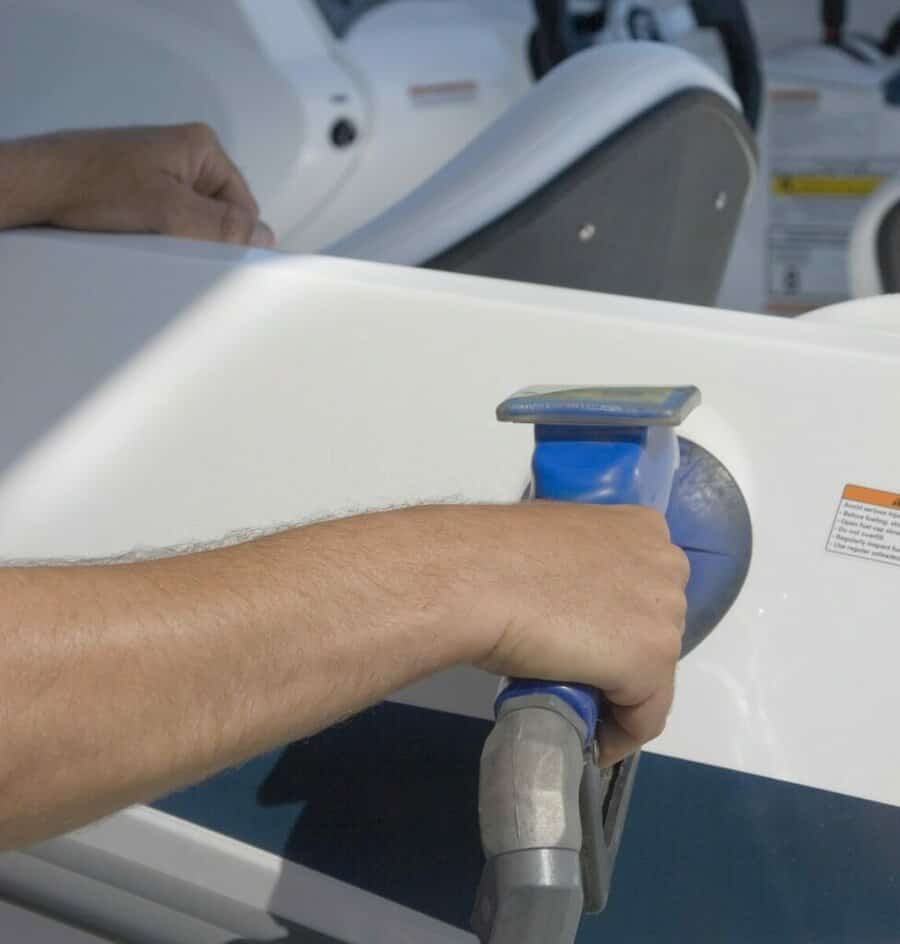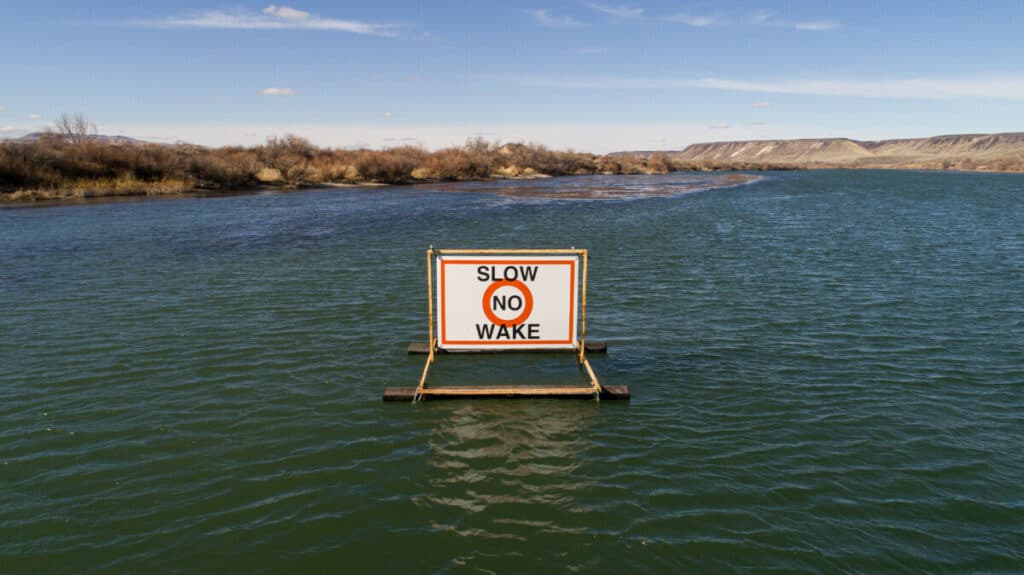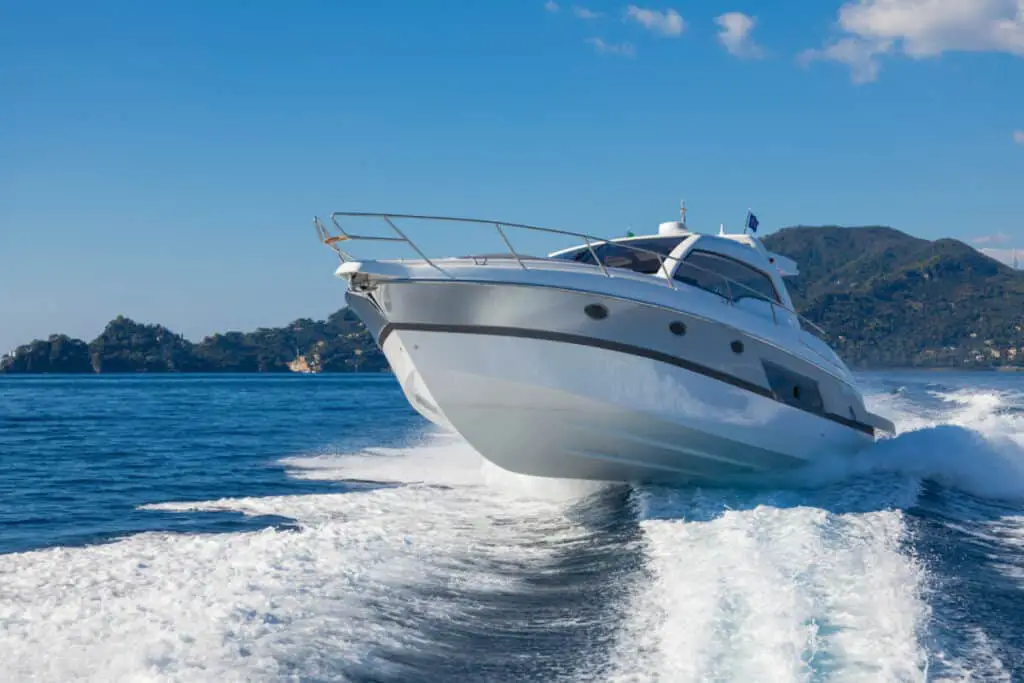There are a lot of mechanisms on a boat that many people don’t know exactly what to do with. One of these is the blower, a fan in the engine compartment. When should the blower on a gas-powered boat be used?
On gasoline-powered boats, the blower should be operated after refueling, before starting the engine, and while running the engine at idle speed. A blower is used to clear out gasoline fumes from the engine compartment to prevent explosions.
It is important to know why a blower is one of the pieces of equipment included on a gasoline-powered boat, and which specific situations the blower should be used in.
What is a Blower Used For?
A blower often called a bilge blower, is a piece of equipment found on gasoline-powered boats. The blower is an electrical fan that is in the engine compartment. It is activated by a switch in the cockpit, and it is one of the most important pieces of equipment on a gasoline boat.
Gasoline is a dangerous liquid. It is very flammable and is extremely unsafe when handled improperly. Gasoline is used to power many vehicles, including, you guessed it, gasoline-powered boats. It can be used in explosive reactions that harness a lot of power to get your boat moving quickly and easily. These explosive reactions need to be kept in the right places on your boat to keep them from damaging anything or harming anyone.
Gasoline lets off a lot of fumes, which is why it stinks so much and is easy to smell. Gasoline fumes tend to gather in the engine compartment of a boat. The fumes are heavier than normal air, so they settle in the bottom, making it harder for the fumes to escape.
The fumes are also very flammable, meaning that a spark in the engine compartment can ignite the fumes. This is likely to be a problem when starting the engine, as that can ignite the fumes. If the fumes are ignited while settled in the engine compartment, this can cause an explosion. At best, your boat will experience some damage. At worst, you and/or your passengers can be killed.
This is where the blower comes in. The blower is used to blow the gasoline fumes out of the engine compartment, releasing the fumes into the outside air to dissipate until they are no longer in danger of exploding. The engine compartment, clear of gasoline fumes, will also be safe from an explosion. It is then safe to start the engine, which creates a normal reaction with the gasoline that powers your boat properly.
So, the blower is used to expel dangerous gasoline fumes from the engine compartment. However, it is important to know when the engine compartment is most likely to have gasoline fumes gathered in it that you will need to expel.
There are three main situations during which there will be a lot of gasoline fumes: after refueling, before starting the engine, and while the engine is running at an idle speed. It is important to activate the blower to expel the gasoline fumes during these three situations.
After Refueling

Refueling is a time when a lot of gasoline fumes tend to gather in the engine compartment. While fueling the boat, the fumes have a lot of potential to escape into the engine compartment and settle in the bottom. Even if you don’t spill any gasoline, there will still be fumes that have escaped while you are fueling up. The time after refueling is likely the time when the most fumes will have gathered, so it is the most crucial time to expel the fumes from the engine compartment.
Once you have refueled, run the blower for about 5 minutes. This will give it plenty of time to catch all of the fumes and send them out of the engine compartment. Make sure to do this before turning on the engine. If you turn on the engine, it can spark, ignite the fumes, and explode your boat. This is even more dangerous at a refueling dock because there are not only more gasoline fumes but there are likely to be other boats around. Run the blower immediately after refueling before doing anything else.
Before Starting the Engine
Another time when it is important to run the blower is before you start the engine. Again, starting the engine while there are gasoline fumes in the engine compartment can potentially cause an explosion.
If you are out and about on your boat and just turn off the engine for a few minutes, you may not need to turn on the blower before you start it again. The main issue is when the boat has been shut off for a while. Gasoline fumes will tend to leak into the engine compartment, which is not airtight. After a long period of time being shut off, the fumes will gather to dangerous levels.
Turn on the blower for about 2 to 5 minutes before starting your engine. The longer it has been shut off, the longer you should probably run the blower. If you are stopping the engine for a few minutes to pick up or drop off a passenger, you won’t need to run the blower. However, if you are just getting on the boat after a few hours away, you should definitely run the blower.
Idle Speed

The final time is when you should run the blower while you are driving the boat at an idle speed. While the engine is running, gasoline fumes are going to escape.
When the boat is moving quickly, the engine will suck the air out of the engine compartment and expel it. When the boat is running normally, the blower is made redundant by the engine. However, while running the boat at idle speed (the speed that produces no wake), the engine does not expel the gasoline very quickly, so the blower should be running.
The blower should run the entire time that you are at idle speed. This gets rid of the gasoline fumes before they can gather in the bottom and keeps your engine compartment clear of fumes. Once you move to higher speeds or turn the engine off, you can turn off the blower as well.
Project “Operation Blower” Boating
Check out our article on: What Should You Do Before Fueling Your Boat? (Important!)

